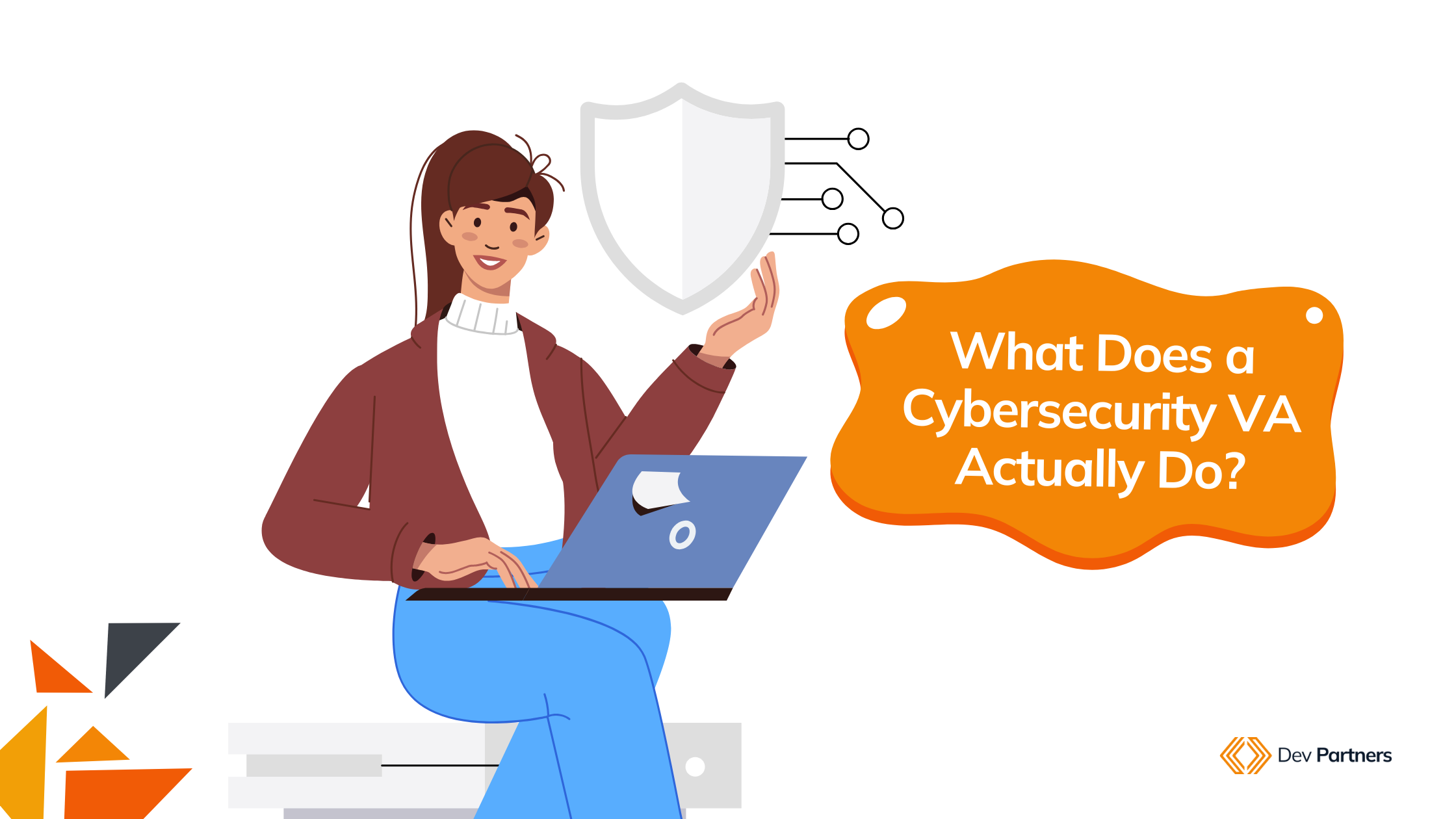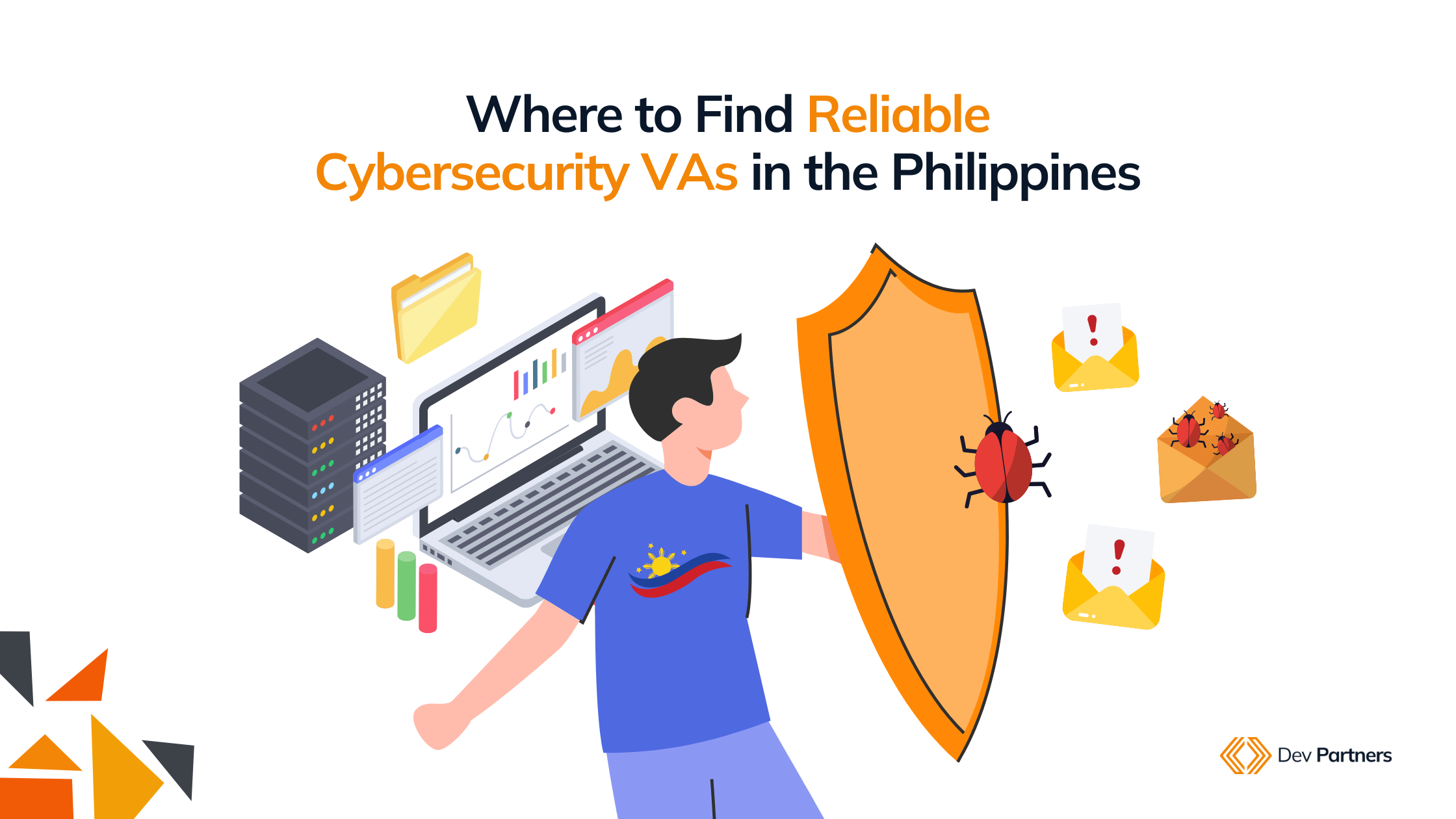
How to Hire Affordable and Skilled Cybersecurity VAs in the Philippines
Ever get that sinking feeling in your gut when you hear about another company’s data breach? It’s like—“How secure is my business really?”
You’re not alone. With cyber threats on the rise and small businesses being hit just as hard as the big guys, cybersecurity can’t be an afterthought anymore. But hiring a full-time expert? That can burn a hole in your budget.
Here’s the good news: You can hire a cybersecurity virtual assistant in the Philippines—someone with the skills to keep your systems safe, without the hefty overhead.
In this guide, we’ll walk you through exactly how to find the right VA, what to look for, what to pay, and how to get long-term value from the partnership. Whether you’re a lean startup or a growing remote team, this is for you.
Need help building your offshore team from scratch? Check out our IT staff augmentation services and scale smarter.
Why the Philippines Is One of the Smartest Places to Hire Cybersecurity VAs
Let’s get real for a second. You’re not looking to throw money around. You want real value—a cybersecurity expert who can handle the job, fits your budget, and won’t ghost you mid-project.
Here’s why businesses around the world are turning to the Philippines for virtual cybersecurity help:
1. A Deep Bench of Tech-Savvy Talent
Filipino professionals aren’t just fluent in English—they’re fluent in technology. Many come from strong IT backgrounds, have international certifications (think: CompTIA Security+, CEH, or even CISSP), and have real-world experience with everything from vulnerability assessments to endpoint security.
According to IBPAP, the IT-BPM industry in the Philippines employs over 1.5 million professionals, many of whom specialize in tech-related services.
2. They're In Sync with Global Workflows
It’s no accident that BPOs have boomed in the Philippines. Filipino workers are used to collaborating with clients in the US, UK, Australia, and beyond. That means time zone flexibility, cultural fluency, and rock-solid communication skills.
3. You’ll Get Serious Bang for Your Buck
This is where things get exciting. A seasoned cybersecurity VA in the Philippines might cost you anywhere from $500 to $1,500/month—which is a fraction of what you’d pay in-house (often $8K–10K/month in the U.S. for equivalent talent).
It’s not about going cheap. It’s about getting strategic.
What Does a Cybersecurity VA Actually Do?

Let’s break it down. A cybersecurity virtual assistant isn’t just there to install antivirus software or update passwords. These folks can handle a wide range of responsibilities, including:
Setting up and monitoring firewalls
Reviewing and analyzing access logs
Conducting vulnerability scans
Implementing MFA (Multi-Factor Authentication)
Writing security SOPs
Ensuring compliance with GDPR, HIPAA, or SOC 2
Responding to phishing or malware threats
Managing endpoint protection across remote teams
Whether you're looking for proactive support or someone who can respond to real-time threats, a cybersecurity VA can be your go-to for digital peace of mind.
Need someone to handle both security and broader IT support? Let’s chat about what your ideal VA looks like.
Where to Find Reliable Cybersecurity VAs in the Philippines

There are several ways to hire a cybersecurity virtual assistant in the Philippines—some more hands-on than others. Here's a breakdown of your main options:
1. VA Agencies & Managed Services
Partnering with a trusted virtual assistant agency can save you time, stress, and costly hiring mistakes. These services handle candidate sourcing, pre-vetting, onboarding, and even replacement guarantees. You get ongoing support, accountability, and a plug-and-play VA ready to make an impact.
Dev Partners is a go-to solution if you want:
Expert-vetted cybersecurity and IT VAs
Dedicated account management
Seamless integration with your existing tech stack
2. Freelance Platforms
If you’re comfortable managing the hiring process yourself, platforms like Upwork, OnlineJobs.ph, and Fiverr allow you to post jobs, screen applicants, and negotiate directly.
Just be sure to filter based on:
Years of cybersecurity experience
Relevant certifications
Case studies or past clients
Availability and communication style
3. Direct Outreach or Referrals
Some of the best hires come from personal recommendations. Ask in cybersecurity Slack communities, startup forums, or even Reddit threads like r/startups or r/sysadmin. Many founders have been in your shoes and are happy to share trusted VA contacts.
How to Hire the Right Cybersecurity VA: A Step-by-Step Guide
Hiring remotely can feel like a gamble—especially when it comes to something as sensitive as cybersecurity. Here’s how to do it right:
Step 1: Know What You Need
Start by listing the exact responsibilities you want the VA to own. Are you worried about phishing attacks? Compliance? Secure onboarding for remote employees? Being clear upfront helps you find someone with the right skill set.
Step 2: Write a Targeted Job Description
Be specific. Instead of “Need someone to help with cybersecurity,” try this:
“Looking for a virtual assistant with experience in endpoint protection, cloud security, and basic incident response. Must be familiar with tools like CrowdStrike, Google Workspace Admin, and basic compliance frameworks (HIPAA/GDPR).”
Include:
Required tools and platforms
Hours per week/month
Time zone overlap needs
Certifications (CompTIA Security+, CEH, etc.)
Step 3: Vet Carefully
Ask candidates to:
Explain recent cyber threats they’ve handled
Walk you through a simulated attack response
Share how they’d handle onboarding a new employee securely
Provide references and portfolio links
You can also assign a quick test task like reviewing your current security policy or identifying weak spots in your login process.
Step 4: Protect Yourself
Cybersecurity VAs deal with sensitive systems and data. Make sure you:
Have a clear NDA in place
Limit access using a password manager like 1Password or Bitwarden
Use team management tools to assign permissions (Google Admin Console, Microsoft 365, etc.)
How Much Should You Expect to Pay?
Rates can vary depending on experience and workload, but here’s a general idea:
Compared to the $90K+ you’d pay for an in-house security analyst in the U.S., hiring from the Philippines is an obvious win.
How to Onboard and Manage a Cybersecurity VA Successfully
Hiring is just the start. Here’s how to set your VA up for long-term success.
Tools and Onboarding
Make sure they have access to:
Slack or MS Teams for real-time chat
A project management board (ClickUp, Asana)
Knowledge base/SOPs
Security tools (VPNs, access control dashboards, scanners)
Walk them through your workflows, tools, and communication preferences. The more context they have, the better they’ll perform.
Set KPIs and Check-Ins
Track performance by:
Time to detect/respond to incidents
System audit frequency
Weekly security reports
Threat reduction metrics
Have regular check-ins and don’t shy away from giving feedback. Good VAs thrive on structure and clarity.
Build Trust and Retention
Filipino VAs value long-term relationships. A few ways to show them they matter:
Offer holiday bonuses (13th-month pay is a cultural norm)
Allow flexibility on local holidays
Provide access to training or courses (e.g., Udemy, Pluralsight)
Maximize Your ROI: Pro Tips
Want to squeeze every drop of value out of your new cybersecurity hire?
Document everything — create SOPs so they can hit the ground running
Introduce them to your dev/ops team for seamless collaboration
Encourage them to make recommendations — the best ones often will!
Pair with automation tools (like Snyk, Detectify, or Nessus)
Real-World Example: From Panic to Peace of Mind
Lauren, a founder of a growing e-commerce brand, didn’t think she needed a cybersecurity pro. That changed after a phishing scam almost wiped out her vendor payments.
She hired a cybersecurity VA from the Philippines who immediately:
Set up 2FA across her team
Reviewed system permissions
Implemented weekly security checks
Six months later? No incidents, zero downtime, and far more sleep.
Final Thoughts: It’s Not Just Affordable—It’s Smart
If you’re serious about protecting your digital assets without breaking the bank, it’s time to hire a cybersecurity virtual assistant in the Philippines.
You’ll get real expertise, lower costs, and the peace of mind that someone’s watching your back (and your firewalls) while you scale your business.